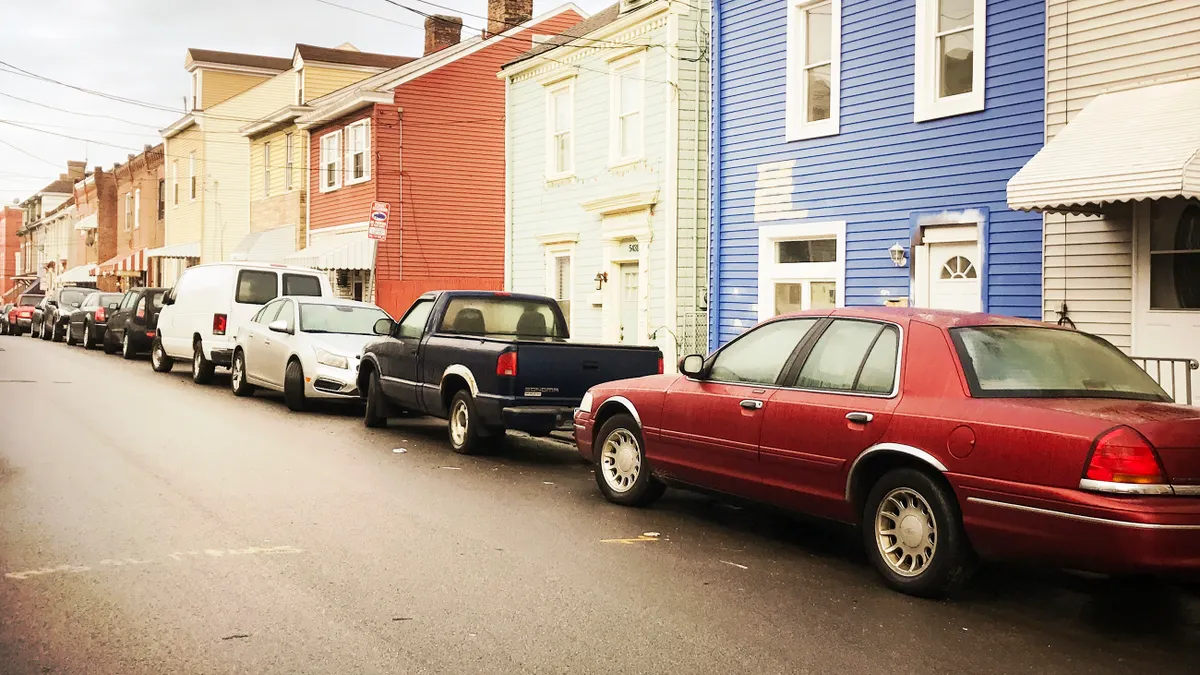When Philadelphia’s Office of Innovation and Technology published its “Smart Cities Roadmap” in early 2019, the concept of a smart city wasn’t universally understood, city officials said.
OIT team members had been exploring programs with this lens — collecting and using data to pilot accessible, tech-enabled solutions within city programs — since they established the SmartCityPHL initiative in 2017. But funding from the Knight Foundation allowed them to formalize this work and dedicate a team to it in 2019.
“We had a whole bunch of ideas that were all over the board, but we ended up realizing we needed to be a little more deliberate in thinking about them,” Philadelphia’s deputy chief information officer, Andrew Buss, said.
The road map assessed the city’s existing resources and initiatives, looked to other cities for inspiration and laid out how OIT would engage with city departments and find tech-enabled solutions it could scale through public-private partnerships to help them operate more efficiently and make public services more accessible.
Mark Wheeler, who served as Philadelphia’s chief information officer until this summer, said that the Smart Cities Roadmap is focused on more than just “intelligent infrastructure,” or the use of sensors and responsive technology.
While the city has tested those technologies — like in a recent “smart loading zones” pilot that aims to manage parking and loading zones more effectively for the flow of traffic — the core mission of Philadelphia’s smart cities plan was to change OIT’s approach to solving the city’s problems.
One such change was the launch of OIT’s “Pitch & Pilot” program, which Akshay Malik, Philadelphia’s smart cities director, called “an alternative route to a traditional procurement strategy.” Pitch & Pilot seeks proposals for increasing city efficiency and accessibility from businesses that prioritize “disadvantaged” communities, keep privacy and data top of mind and have the potential to scale as they prove their value.
Wheeler said the OIT felt Pitch & Pilot was going to be “critical” in changing the way the government worked with private companies.
“This was going to be much more of a problem-statement driven endeavor, and we wanted to be able to have the Pitch & Pilot … work as the main conduit for any type of influence and intelligent infrastructure, rather than vendors going to different departments and tapping them on the shoulder,” he said. This process creates a more unified approach for other potentially less tech-savvy departments to integrate tech solutions.
In the last four and a half years, Pitch & Pilot has worked with small and large companies to test efforts to reduce waste and increase waste diversion, repair roads and increase equity with AI-reviewed images of the city, among others.
Malik, who’s been in the role for a little more than a year, says that while he wasn’t at the helm when the Smart Cities Roadmap rolled out, he can see the “brand” of the team has evolved since then.
In 2019, most city departments didn’t know what to expect from a smart cities team, Malik said, nor did most city residents. But with multiple programs up and running, the team has gained a reputation for being collaborative and reliably delivering solutions.
Malik believes having a dedicated smart cities team has been key to these positive outcomes. The city’s chief administrative officer and chief information officer work with him and his staff, who facilitate working groups, stay in touch with various city departments and jump-start pilot programs to carry out the vision of the Smart Cities Roadmap.
“If you go through us, there's a lot of curated things about this experience, we shape the problems a little more, we handle a lot more with scaling,” Malik said. “A department does not need technical know-how.”
A recent project focused on expanding access to publicly available city services kicked off with Boston-based software company OpenCounter, part of Euna Solutions. In February, the company and city released Permit Navigator, a website designed to walk residents through the process of applying for permits, approvals and other requirements for residential and commercial projects such as renovation, construction, or launching a business.
Clint Knittle, OpenCounter’s director of sales, said the software company’s bread and butter is working with city governments, so he’s seen a scope of how cities handle smart cities efforts.
“Philadelphia is one of the cities that I've found that really is a front-runner,” Knittle said, in terms of having a smart cities team and being “a forward-thinker as far as smart cities are concerned.”
Buss, the city’s deputy chief information officer, said that the plan took a slight pause when the pandemic hit, since OIT’s main job then became to get everyone in city government digitally connected and working remotely. But then-Smart Cities Director Emily Yates kept “chipping away” at projects, with the goal of making city services easier to use, Buss said.
The original Smart Cities Roadmap has evolved enough that city leaders are thinking it's time to make a new one. Malik has found that projects fall into three categories: mobility, non-mobility infrastructure and software systems.
Buss said the team’s system has “matured enough” to warrant a fresh look. But the goals remain the same: To help city departments find and scale a smart solution to improve efficiency and accessibility.
“There’s a level of ownership and collaboration that has come about with this brand. We don't want to own the project, it’s someone else's project,” Malik said. “When we work through it, it's taking the burden off of the other agency. We scale it up and pass it on.”


















